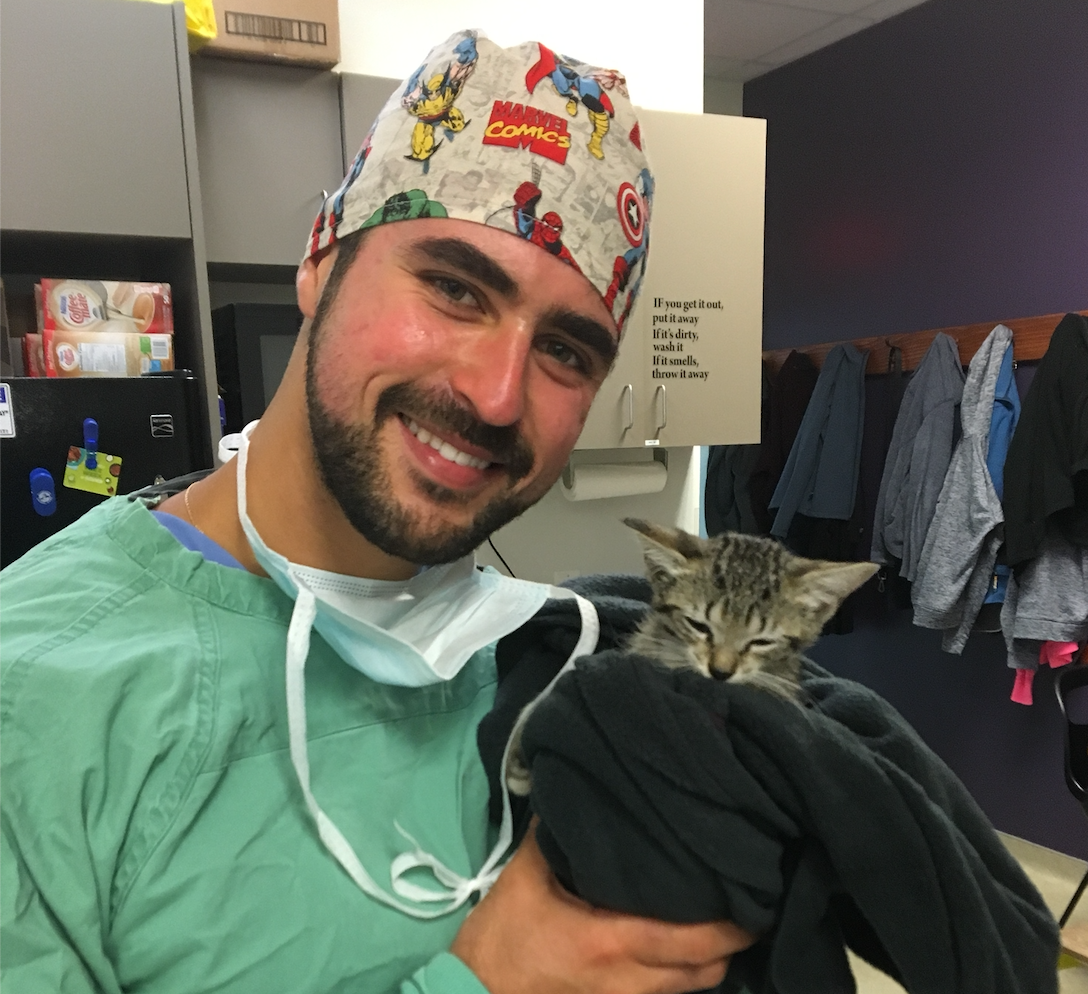Coronavirus: a “novel” situation for veterinary students
Thoughts from a third-year veterinary student about to embark on clinical rotations during COVID-19.
Harris Fitzgerel

Every veterinarian remembers the day they received their white coat and the first time they stepped into a clinic as a fourth-year student, ready and anxious to begin practicing the medicine they have been studying for the past three years.
About six weeks ago, my classmates and I were getting ready to receive our white coats. Our families were excited to watch us achieve this milestone, and we students were filled with feelings of anxiety and excitement as we realized that we were only about two weeks away from stepping into clinics for the first time. My loved ones were planning to fly from Virginia to Massachusetts, excited to see me start this new chapter. At that point, we had just started hearing murmurs about a novel virus hitting certain areas of the United States, but it was nothing to worry about—or so we thought.
If you haven’t already done so, make sure you read “When a virus pulls the rug out from under graduation.” Danny Sack offers an amazing perspective on what it’s like for fourth-year veterinary students to be finishing up clinicals during this pandemic. I would like to offer a glimpse into what this situation has been like for veterinary students just getting ready to start those clinical rotations.
As the story continues, our white coat ceremony was restricted to students only. Although this was obviously crushing for us and our families, friends and significant others, it was the most responsible decision. The ceremony was followed by a week of spring break, after which we were supposed to return to campus to begin our clinical rotations. Except that’s not what happened.
To promote social distancing, our school—and all other U.S. veterinary schools—decided it was best to limit the number of people in the veterinary hospitals. For us, this meant we were placed on a leave of absence for an additional week, after which our rotations would begin online. How does an online clinical rotation work? That’s a great question, and one we are still struggling to understand.
So here I am, at the beginning of my clinical rotations, unable to meet any patients, unable to improve how I interact with the many different kinds of clients veterinary medicine brings and, most importantly, unable to truly practice the medicine that I have been learning for the past three years. As sad as this sounds, the worst part is that my classmates and I cannot really fathom how unfortunate this is because we don’t know any different. This is our normal. And with the threat of this virus resurging later in the year, we are all anxious that even when we do return to clinics we may be forced into this predicament once again.
How will this allow us to become the confident new graduates that my school proudly produces every year? How will it affect our ability to get that rotating internship we want or that equine internship we want that essentially requires us to extern at several different facilities very early in our fourth year? How will it affect the confidence our new employers will have in us? Most fourth-years usually have as the only things plaguing their minds the NAVLE (North American Veterinary Licensing Exam) and making sure they answer the clinicians’ questions correctly. These worries have taken a backburner as we are now more concerned about whether we will be able to enter clinics at all.
COVID-19 has produced a new normal for the entire world. In veterinary medicine it has meant telemedicine and curbside care. For us third-years, this is not a “new” normal; it is the only normal we’ve known. I just hope that all of this ends soon so that we can experience a normal in which we practice medicine in a clinical setting with living patients and clients, experiencing the traditional enjoyments and disappointments that we were promised as fourth-year students. I can’t wait for a time when I am worrying about passing the NAVLE or answering clinicians’ questions correctly instead of worrying about whether I will be able to take the NAVLE or if I will be allowed to enter the clinics at all.
Harris Fitzgerel is a current third-year veterinary student at the Cummings School of Veterinary Medicine at Tufts University. He is interested in small animal medicine with a particular emphasis on dermatology and general practice.
2 Commerce Drive
Cranbury, NJ 08512
All rights reserved.